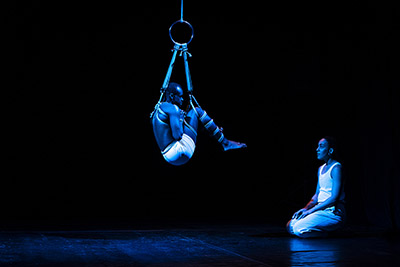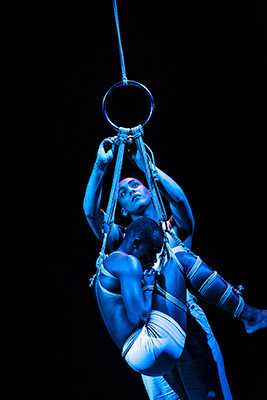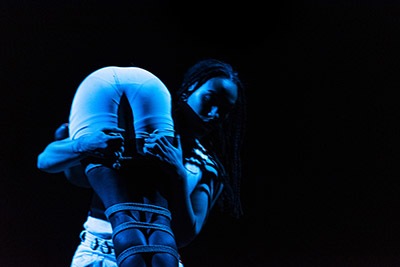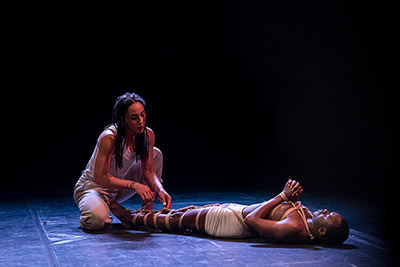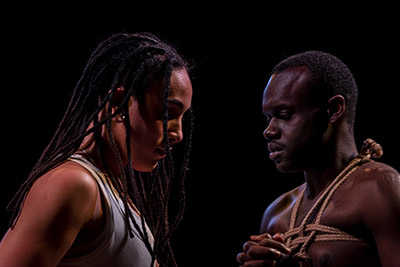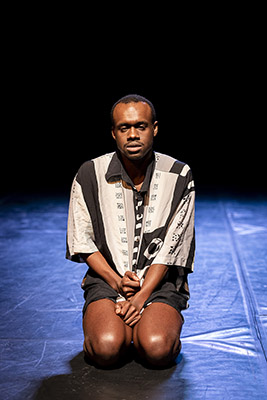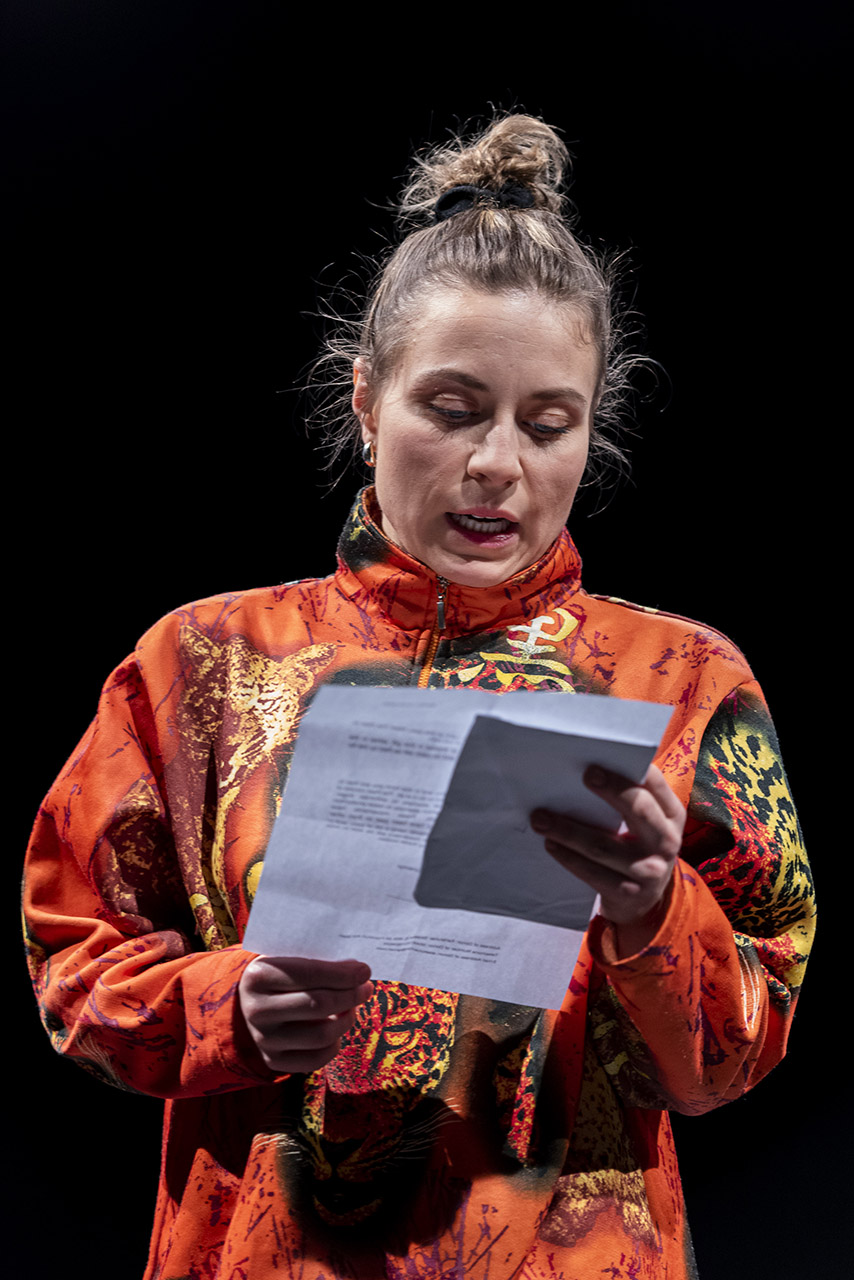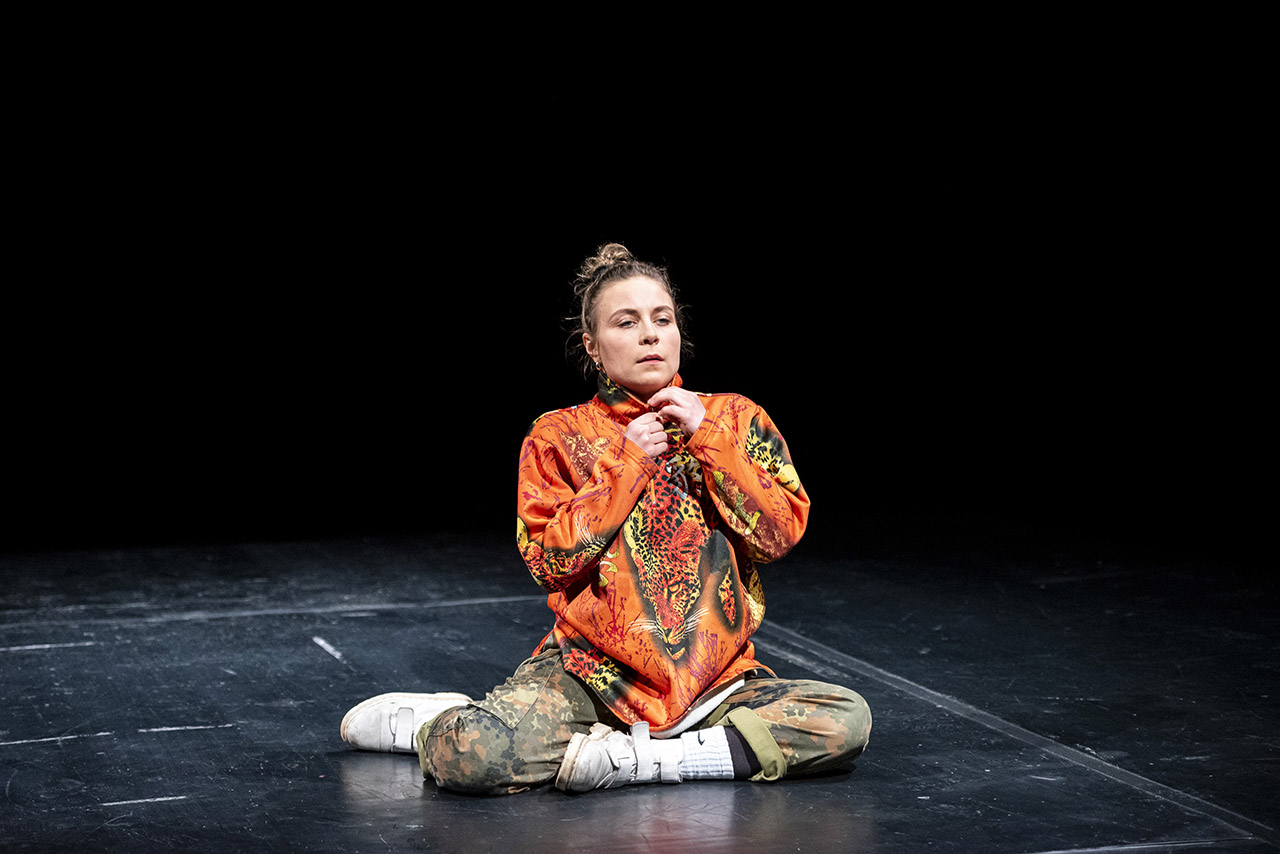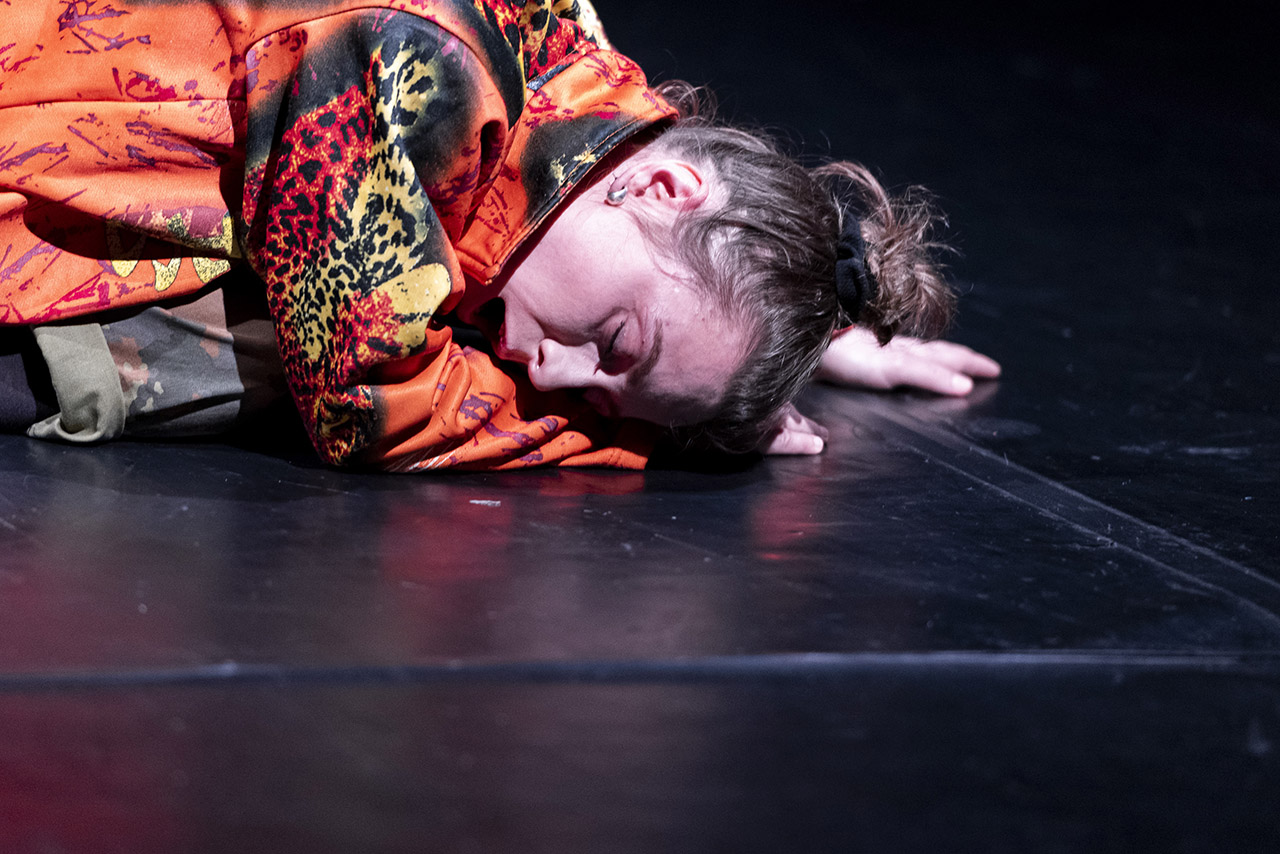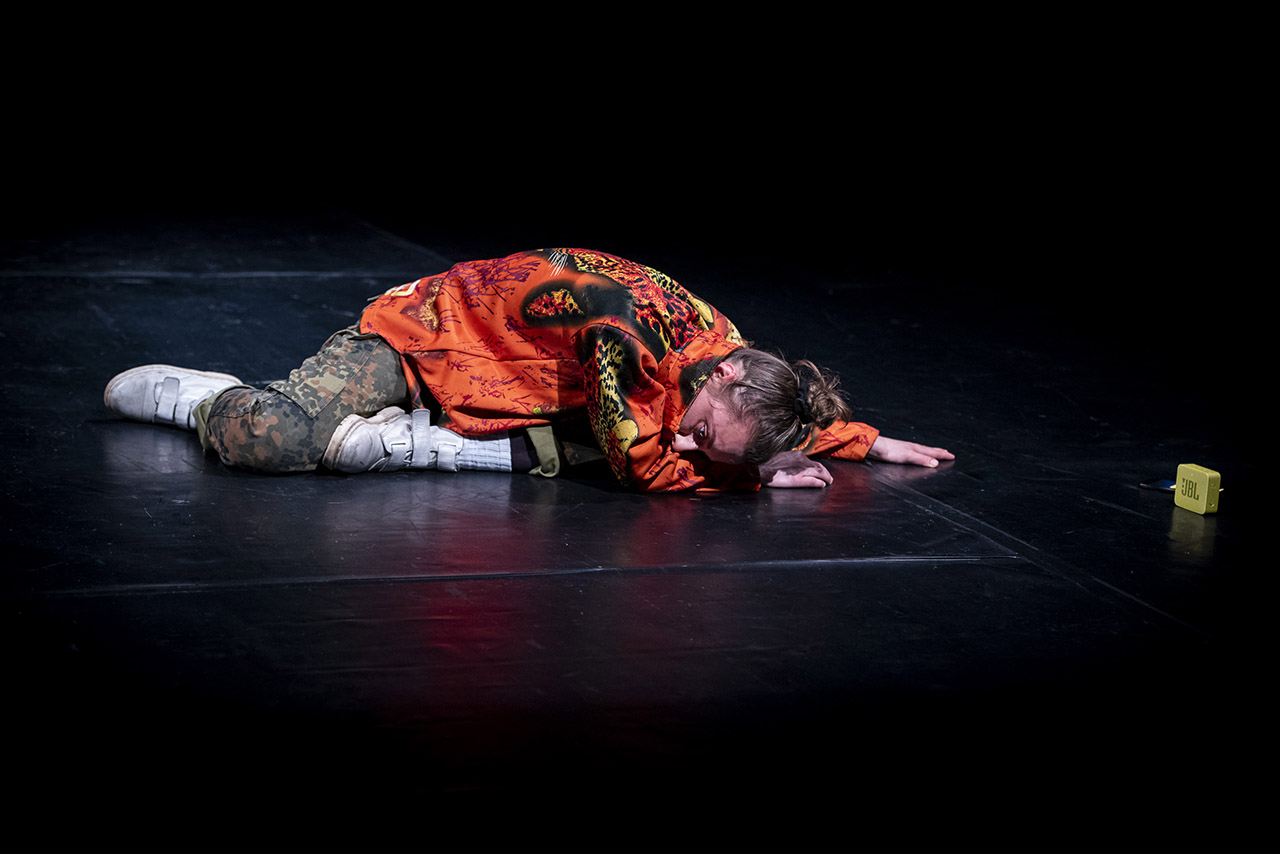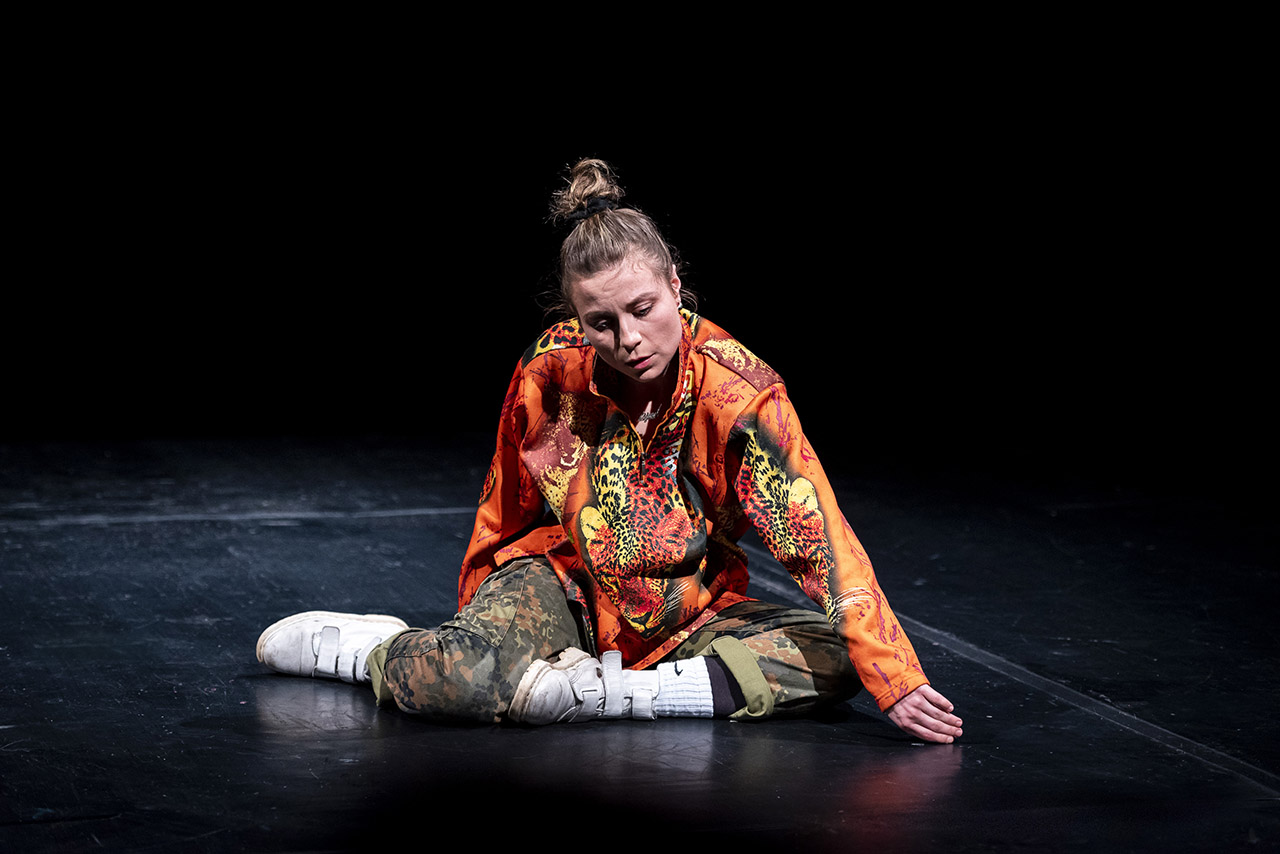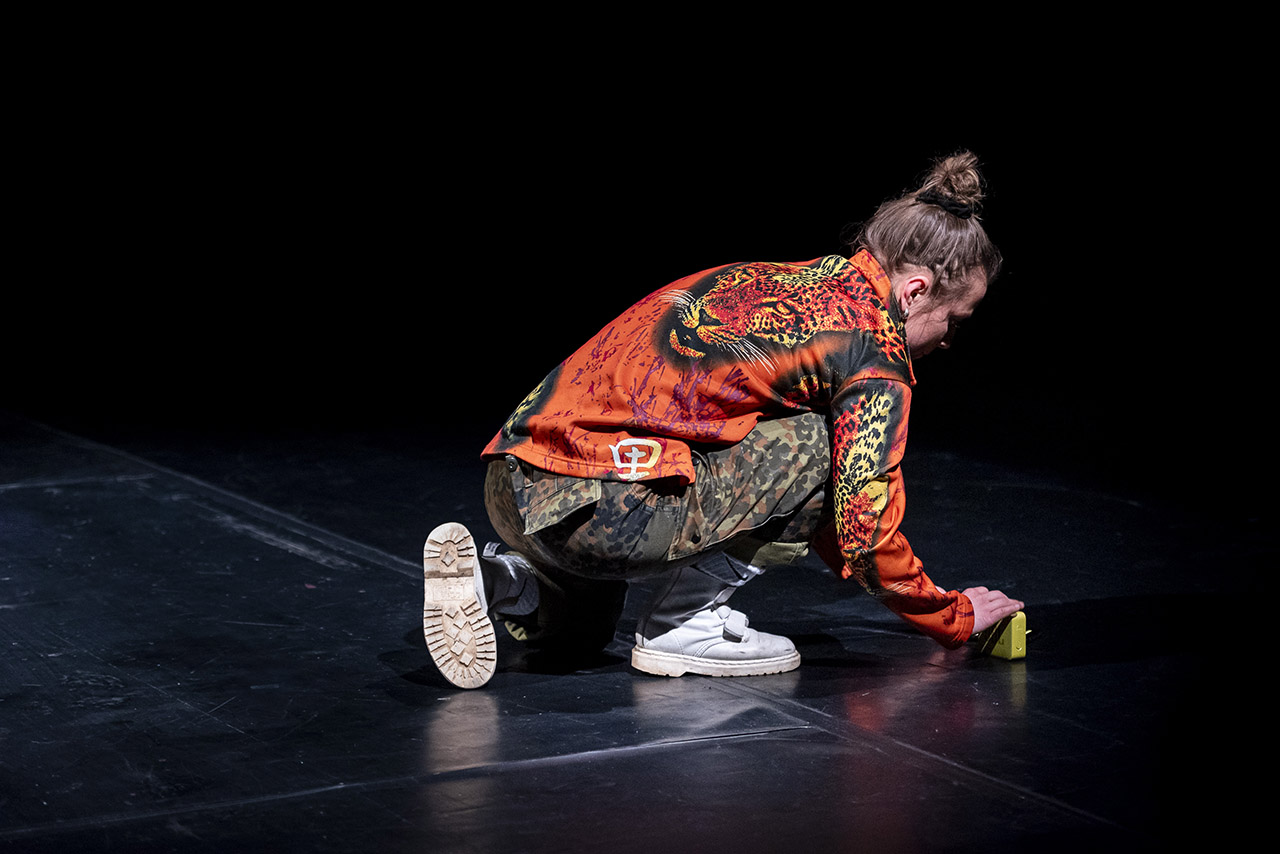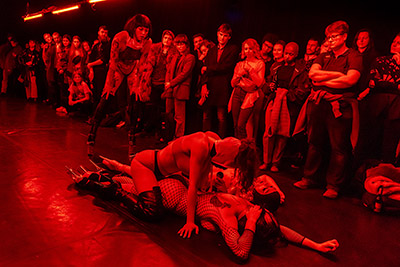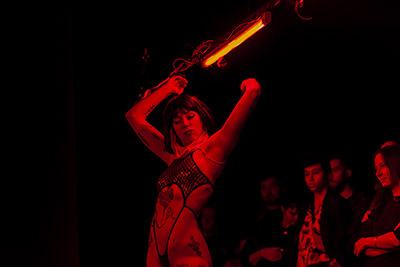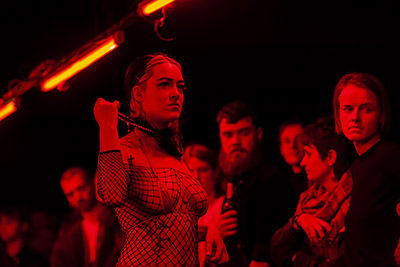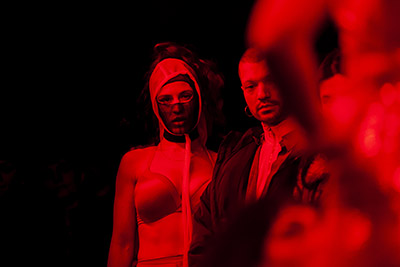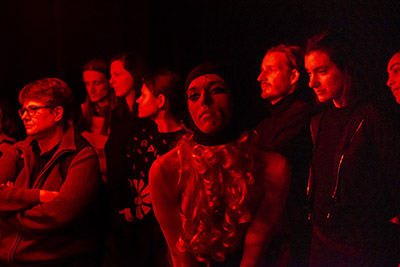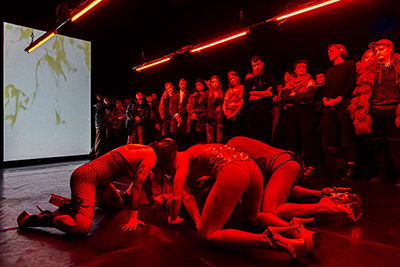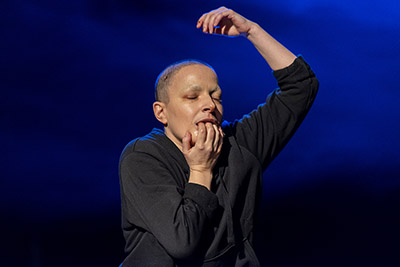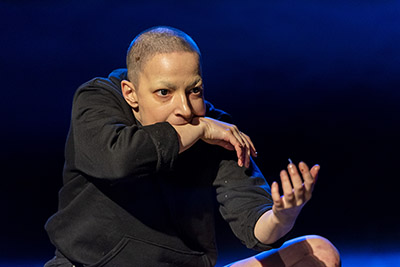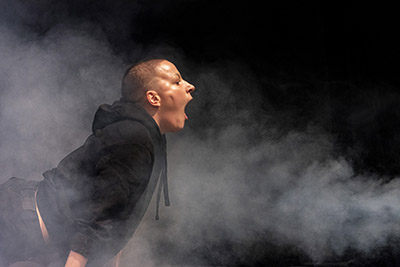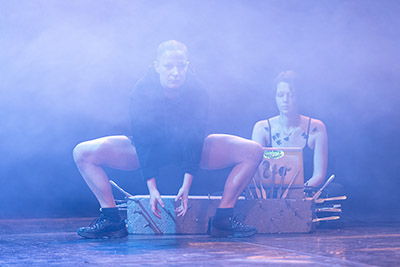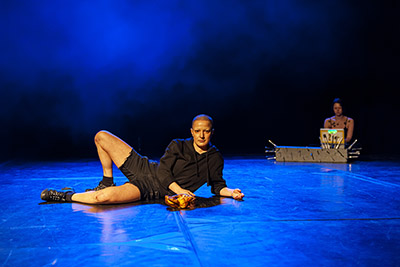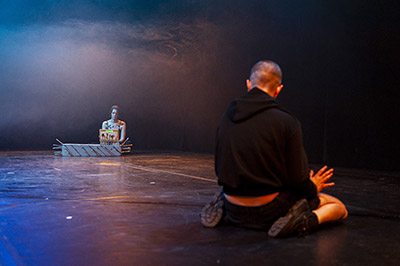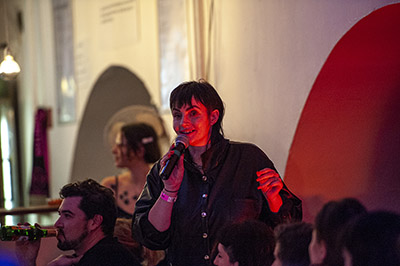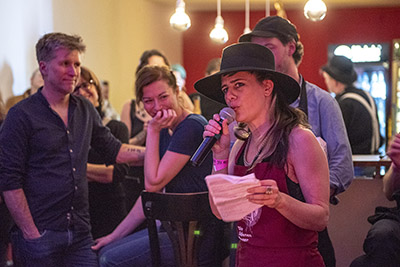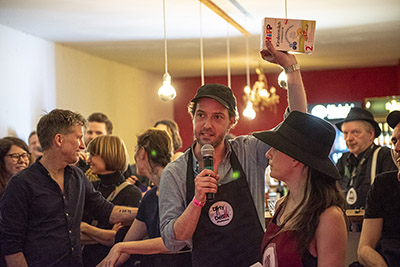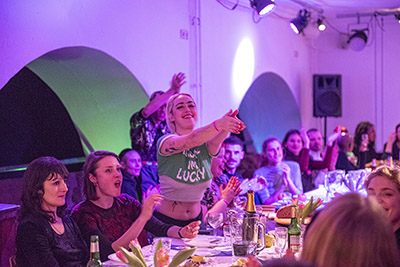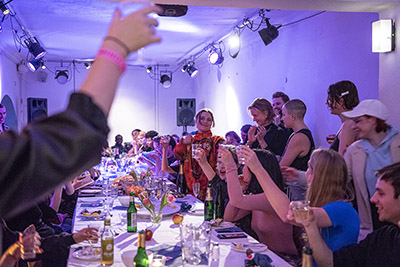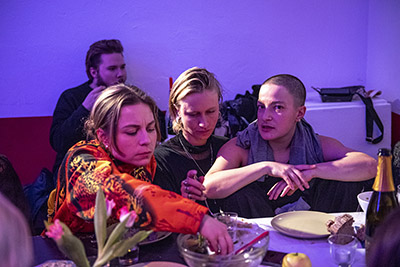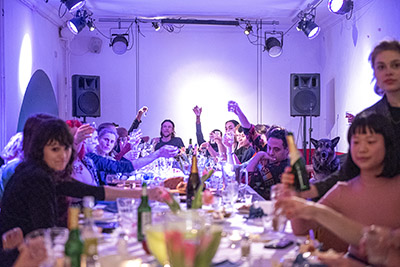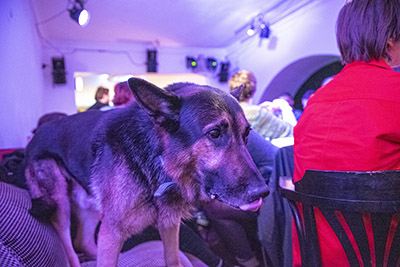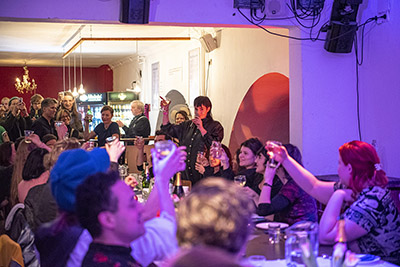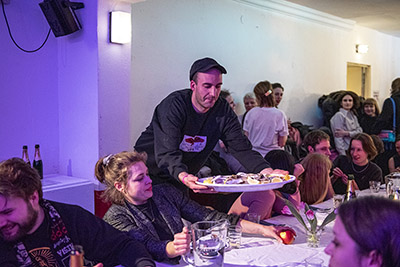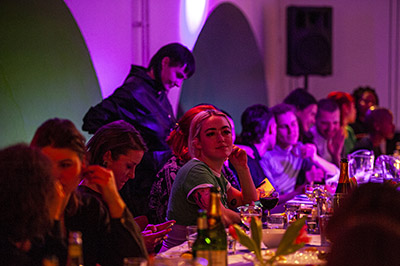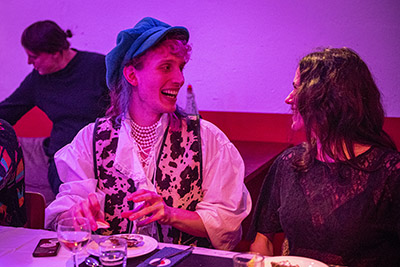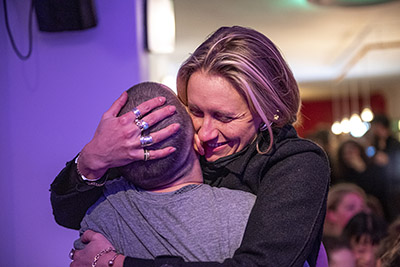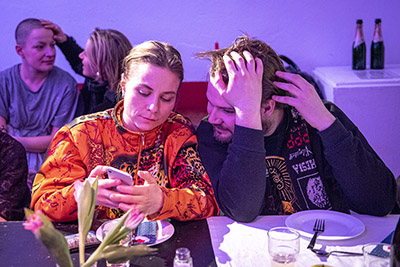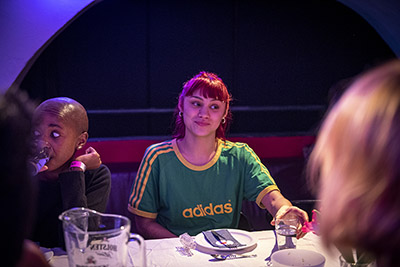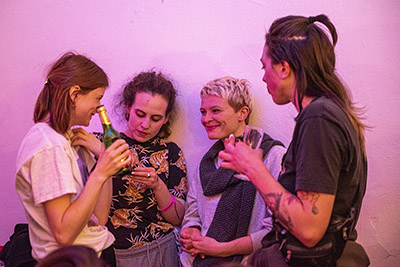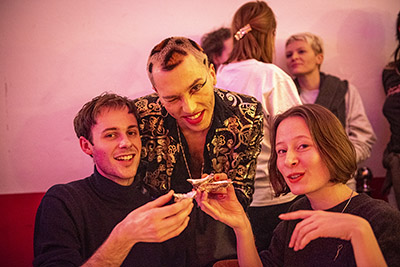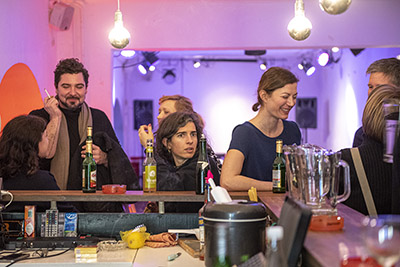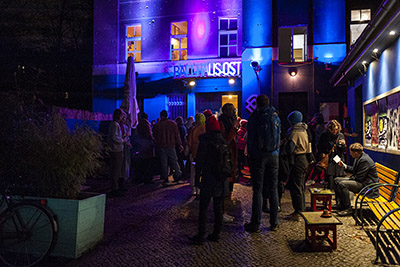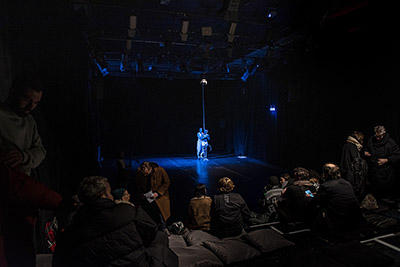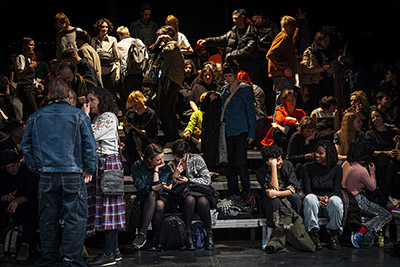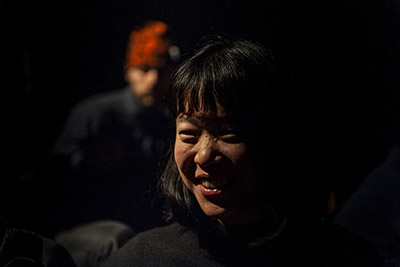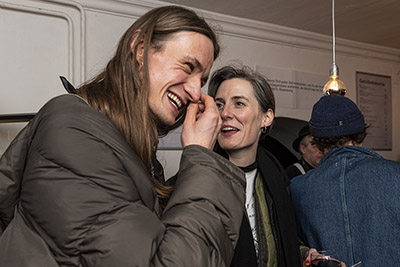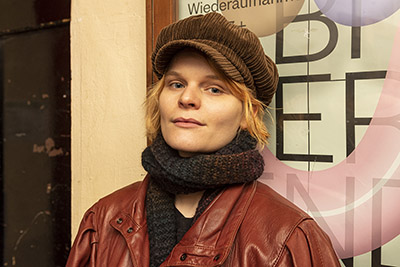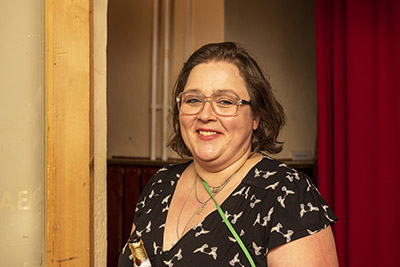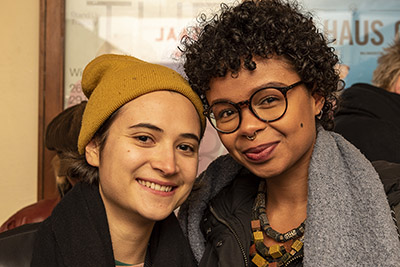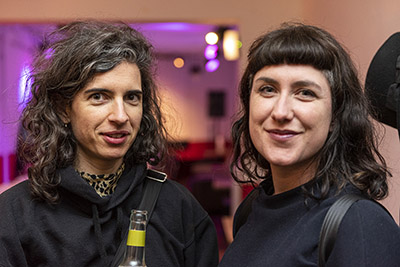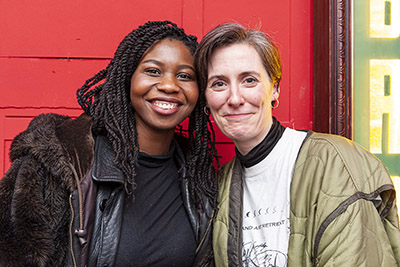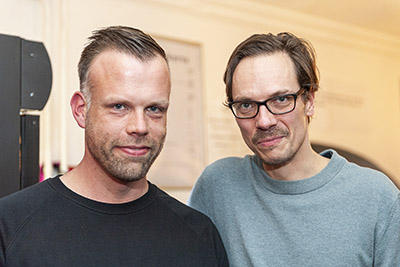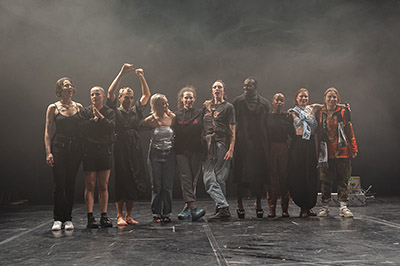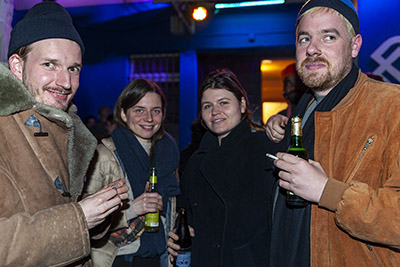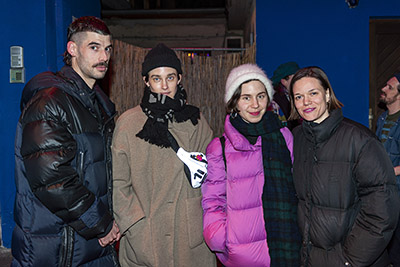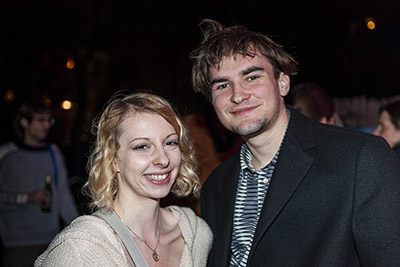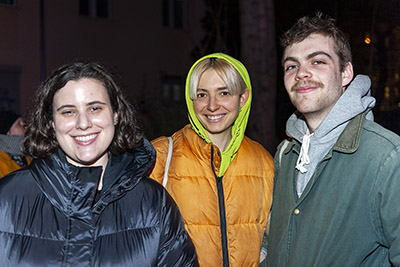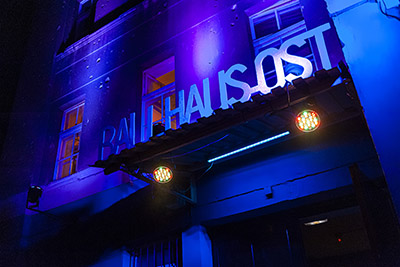A Glitchy Anesthesia of the Heart: Valentine’s Day But Make It Queer
Eva Tepest & Lynn Takeo Musiol
In Sex, or the Unbearable, theorists Lauren Berlant and Lee Edelman seek, through the lense of sex, to understand the ways in which we counteract the affective disturbances in encounters with others and the world, both as a crucial human experience and at its most concrete, in specific loss. In the chapter dedicated to queer scholar Eve K. Sedgwick, Berlant and Edelman trace the maneuvers we employ vis-a-vis...
A Glitchy Anesthesia of the Heart: Valentine’s Day But Make It Queer
Eva Tepest & Lynn Takeo Musiol
“As if a cure was needed”
Craig Morgan Teicher
In Sex, or the Unbearable, theorists Lauren Berlant and Lee Edelman seek, through the lense of sex, to understand the ways in which we counteract the affective disturbances in encounters with others and the world, both as a crucial human experience and at its most concrete, in specific loss. In the chapter dedicated to queer scholar Eve K. Sedgwick, Berlant and Edelman trace the maneuvers we employ vis-a-vis the “eternal task of holding up the world” by ourselves; the individual and cultural techniques of drama, paranoia, and shame, of irony and optimism. Why sex? Think about sex not as fucking but as a potential encounter. A corporeal arena of desire and intimacy that nudges us, sometimes desperately, sometimes offhandedly, to produce the fantasy of “a stable context, a stable place to identify, or anything”. Anything will do, nothing will ever do. At best, we manage to stay open to incoherence and negativity. At worst, our attempts at normalisation turn ourselves numb, our politics normative and our relations flat. A glitchy anesthesia of the heart, killing the pain of the everyday: “You’re so cute”, or “I will be there” or “I love you” or “We are safe”. How can we make life more bearable without dumbing down the world?
Let’s break this down: It’s a windy February evening, it’s almost the end of winter. Twigs and branches bend into sleep, you can barely see any green or purple speckles. At home I had tried to succeed at online shopping. The Wifi connection was constantly breaking down, so I got frustrated. I used my neighbor's wifi, more or less consensually, so I ended up thinking about class. I think about class as much as I think about sex. It’s all part of painting or releasing images of myself, not vertically but horizontally, in a way that isn’t simply a dispersion in space. It is about the exploration of an unknown landscape that enfolds playfully. Unfortunately, this is highly destabilising. And painful. Eileen Myles says: “There’s a fundamental problem in working-class families. It’s like you revere art, you believe in reading, you believe in books, but you don’t understand their production.” It took me years to see myself in the middle of the relationship between production and consumption. In a way, I have made myself homeless. I did this to myself, I know exactly how it happened. Yet in the art world, people need to act like they don’t know. "There’s a faux vernacular, as though the ambition must be hidden at all times, to be more, I don’t know, attractive?", Myles asks. As if ugliness were an intellectual wound. As if the wound, in its obscenely gaping form, is the one that stirs our desire. Is there an erotics of despair? Or, in other words, a hidden erotics of transgression?
A cure for what?🙏
Pain never simply is, but needs to be situated in the everyday reality of micro-aggression. This is one of the premises of Djibril Sall‘s performance Pliable. Here, we find them completely lifted off the ground, supported by ropes. Fully suspended, they appear at the mercy of their co-performer Shibari Kaleb Coulibaly. Over the course of the performance, they are untied, determinedly, while musician Adelle Nqeto is accompanying the event with a melancholic looped bass line. Full suspension, in BDSM or on a performing arts stage, requires a lot of strength and skills on both the giving and the receiving end. It thus becomes an act of care, and caressed the performer’s body appears, gently committed to the ground. The technique of bondage roleplay threatens the self with nothingness, only to bring it back in its distinct form: A devotional act that promises but fails at the transgression of the pained body.
What follows, is a poem on speechlessness, hushedly recited. Sall, squatting on the stage, recalls “Scrolling on my iPhone” while losing all their words, muttering an array of lines, barely audible. The music continues, an opening-up from the withdrawn focus of the bondage practice to the universal affliction of what Sall, with Descartes, describes as “the shock of the body”: We cannot help but think of death, simple and unspecific, at least for the one passing on. Or maybe it is just as mundane–and “the shock of the body”, here, is but the surprise of waking in a dehydrated body, the jolt of exiting an orgasm to a cramped leg, the mild disappointment of finding oneself, once again, untied and alone. A blank, negative decal.
“It’s Valentine’s day, after all”, you say and give me a big hug, waving your dark blue scarf around your neck as we’re meeting at the venue. “Was there ever any language to talk about the things you wanted?”, you ask promptly, looking at the leaves whirled up by the wind. “Because to come to Berlin when I did with bold but modest ambitions was not impossible, but felt somewhat lonely. Everything I thought I knew was wrong. So as part of the class voyage, I learned how to perform and in that sense, I learned how to speak.” “That’s what I call the loss of pomposity”, I said. “Working-class kids like big words. There is magic in pretending.” You, digging up your purple lipstick out of your back, have lost the urge to decorate your language with a sugarish frosting of knowledge. Now, you are the cream on top, but relatively stiff, like baiser. And there’s still your cake base: Am I queer enough? Am I artsy enough? Do I know enough? I cannot help but think, before stealing kisses from a lover to the right, just at arm’s length.
Miserere 🐣
The foreplay of the The Past is a statement read out by singer-performer Liina Magnea: The movements she is going to perform during the next 20 minutes have been passed on to her by choreographer Else Tunemyr. This is a one-way transaction. “There is going to be no repayment”, Liina adds, and quite a lot of people, laugh. It’s funny, how? Let’s just hope everyone on and beyond stage is paid properly.
The next part of the performance starts, consisting of a drone, blasting from a speaker on stage, and Liina Magnea, elsewhere known as one half of the Icelandic pop duo Magnea, her voice and her body, going through the motions of a supposed gestural tradition. Is it just us, or are these very gestures part of a gay alphabet? One hand lifts up the boob. Trigger finger tall finger index finger middle finger, how many fingers? Liina Magnea is moving her upper body up and down, extolling the ground, her voice, an incomprehensible dirge. Her art, Else Tunemyr explains elsewhere, is meant “to distance the movement from the one who is moving to ever so slightly shift a sense of will”. Liina Magnea’s tongue and body and lips and orange military cheetah shirt are a medium, but one of obstruction, from the unintelligible lyrics to Liina Magnea’s uncorporeal bodily movements. It’s like Gaia in a relatively monochrom Studio Ghibli setting. Her world, however fantastical, seems untethered rather than anchored, with a tinge of melancholy and incompleteness: Liina, looking at us, is she looking at you, no wait, is she looking at me? “Soviel Pathos ist unschlagbar“, she concludes. That’s cute but beware: The essence of the adorable, Berlant and Edelman observe, “lies in its distance from the exceptionality of beauty or ugliness. [I]it denotes what’s expendable because so easily replaced”. It is, they continue, “an anaesthetic feeling, a feeling that aims to protect against overintensity of feeling”. There is no pain here, ergo, we must be either post-pain or pre-pain or outside of pain altogether.
🍭 Not a BREAK up song 🍭
Cruising is not vanilla, not even sex 🎠
Back on stage, there now appears a saloon covered in red like the lips of my latest affair. Redness is a symphony orchestrating bodies, a flow I can’t resist digging in. It's a monastery, we are not allowed to sit, believe me: I am moderately drunk, melting and my neighbour's last sentence is lost. “I am not part of the bourgeoisie“, the light says, and it’s fire, stumbling into the corridor, framing the hypervigilant immediacy of a catastrophe. I am totally in the right place: Voices, naked bodies, nuns and champagne. I know every trick in the book, I am boy blatantly picturesque. I have never been financially fertile but class gave me all-inclusive access to shame. As a power bottom, and Scorpio, this is my home.
For the first time during the evening, the so called fourth wall is broken: NudE NuNs w/BiG GuNs (Nastja Antonenko, Josephin Hanke, Lucky Hole, Bo Thomas, Laurean Wagner) welcome us in a soft immersive setting, their bodies are covered with straps, thongs, tattoos and mesh, all of them circle around us, going up and down, coquet but never reckless. Cineastically, the Catholic is a common lesbian motive (Mädchen in Uniform, Lost and Delirious or Loving Annabelle to name a few), including ambivalent eroticism: the respectable person in authority is met by its unconventional, rebellious antidote, open in their disregard of authority. However, in the monastery, this slippery yet ballsy runway-like episteme, this legitimate referent, mother superior (be careful: not Mother Immaculata), is called ASMR. Here, a soft, repetitive voice mumbles equal-toned quotes from a holy queer bible. My inner soft butch collapses.
Frankly, mother superior is a peculiar sensation: a joyful tingling like a warm effervescence straight down my neck, making its way down the length of my spine and leaving behind a sense of quietness, gratitude and wholeness. Mother superior resonates not immediately: As for all spaces I am not familiar with, my body shuts down, longing for codes and conventions I can deal with. This quest for agency produces discomfort. Overall, it is an attachment to the past, an embarrassing condition of being unsophisticated, so I tend to betray the insecurity of the unexperienced conditions, rephrasing Myles. My toolbox comprises silence, ground-focus, resignation and sometimes irony. Here, however, Mother superior tends to ensnare my undecided roleplay, she tops carefully. She strips off the notion of a satisfying one-point-perspective, cues like locked eyes, a turnaround glance, winks, gropes, signify consent to approach one another. I even smell fresh lemon verbena, playful mandarins blend with notes of cinnamon. Mother, Daughter, Holy Spirit, this is a micro-dosed anaesthetic! At the end, it’s not even surprising, that her Holiness is rolling out of focus – intertwined, rumpling, laborious – an endless prelude for infinite expectancy. Back in the corridor, the purgatory is waiting.
My 🐚, my 🌍
To be honest, in purgatory we are likely to meet Narcissus, but not in the form of a blonde beau, but an uncanny antropophagic vision. Limbo, in Fjóla Gautadóttir’s & Suvi Kemppainen’s “cut me glass / you're so fucking peinlich” is performer Suvi Kemppainen, faced with a grilled chicken that she picked up as if unintentionally from the corners of the stage. The corpse smells, we think of the grand pleasures of grandmothers in Rhenish small towns, ein halbes Grillhähnchen und Kartoffelsalat, a sweet and unpolished memory, and no one ever wearing their Sunday best. Strange nowadays, and as Suvi Kemppainen plucks the poultry to pieces and incorporates the dead animal bit by bit, her own corporeality becomes as stiff as a chicken on a spit. This is not merely a scene, it’s a crime scene, one not leaking blood, but fat. She drags the chicken away, willfully unconcerned and commences her dance, criss-crossing the streaks of fat across black planks, part learned dance moves, part animalistic animation: Suvi Kemppainen skips from dynamic Yoga cat pose Majariasana to cantering horse, while dj Fjóla Gautadóttir gives the beat with a sequence of whickering, grunting, and oinking: Welcome to the danse macabre un-straight out of your eeriest children’s book.
Cut from the dystopian post-human to the man-machine: Suvi Kemppainen’s animistic metamorphoses come to a halt upon the entrance of pop. “So you took a chance, made other plans/ but I bet you didn't think that they would come crashing down”: Cry me a River, the beloved anthem by Justin Timberlake, a dyke. What follows are the robotic dance moves of a burned-out musician on a too-long tour, marching through wafting dry fog. Did you know that people in the music business are three times more likely to develop mental health issues than the average population? Did you know that Kentucky Fried Chicken and Crocs, two of the most disgusting mass products ever created, have teamed up to create a shoe that looks and smells like fried chicken? In capitalism and its emissaries – the performance arts scene, the fast-food industry – the worker is replaceable. Anyone could write this text. The fried chicken embellishments on your pair of co-branded footwear are not safe for human consumption. You cannot dance away from the anaesthetic hymn of the masses.
It's a crime of dispassion, I guess, un-straight afterwards at dinner. We’re toasting, it’s euphoric. So I imagine you grabbing the mic, climbing onto the table, brushing your hair back, cos your a mixture between Leo and Jack, a full moon woolf as you gently whisper into the crowd:
A bottle of bubbly, thanks,
I’ll chug that
My oysters, my world,
But I will never know how to eat them
without proper instruction
how can this be a cure
to my working-class pain?
I’d rather have this vodka,
to take this longing from my tongue.
And we got only moderately drunk, moderately naked, moderately orgiastic. Who can afford to get fucked up these days? And as we left at a moderate quarter past midnight, only the umbrella was missing in the sizzling of the rain, microdosing to meet us.
Lynn Takeo Musiol ist freie Künstler*in und Autor*in mit einem Fokus auf Klasse, Queerness und Klima. Zuletzt arbeitete sie/er als kuratorische Assistent*in beim Berliner Herbstsalon des Maxim Gorki Theaters, ab der Spielzeit 20/21 arbeitet Lynn Takeo als Dramaturg*in am Schauspielhaus Düsseldorf.
Eva Tepest ist Autorin und Journalistin. Über Kultur und Medien, Queerness, Feminismus und den arabischen Raum schreibt sie regelmäßig für die taz, den Tagesspiegel und das Missy Magazine. Gemeinsam veröffentlicht haben sie u.a. in taz, Glitter und den Metamorphosen.
